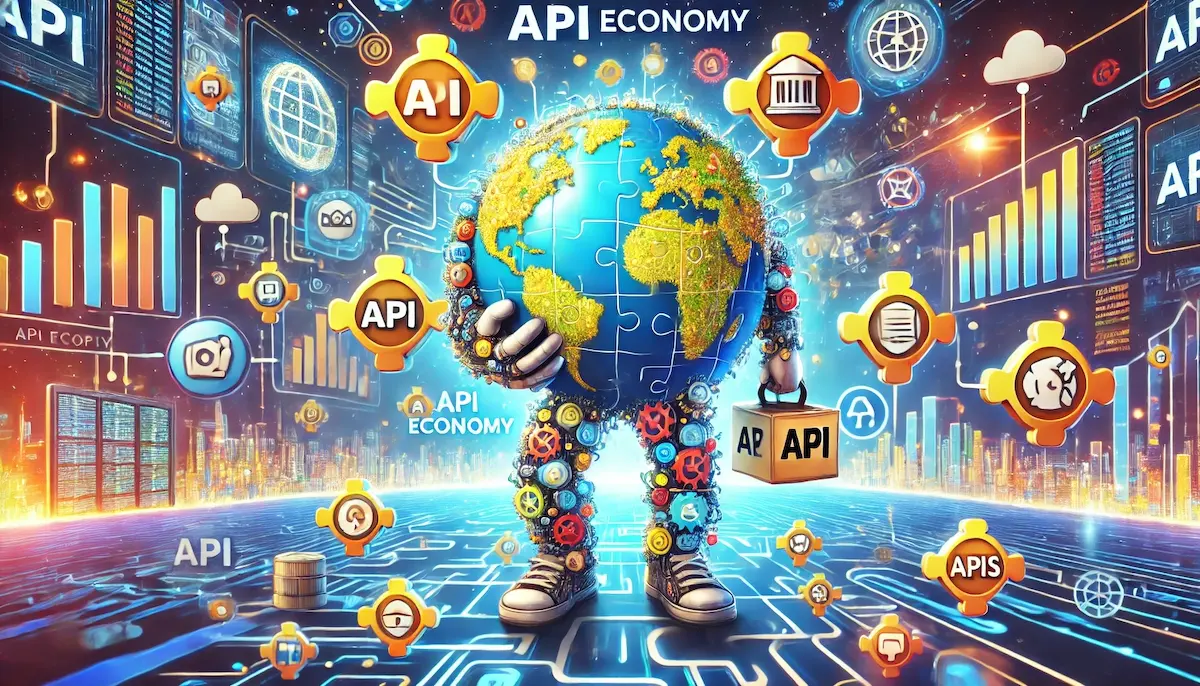The API economy refers to the way that application programming interfaces (APIs) have transformed the business landscape, enabling organizations to create new value streams, enhance efficiency, and foster innovation. APIs facilitate the seamless exchange of data and services between different software systems, allowing businesses to integrate functionalities, create ecosystems, and open up new channels for collaboration and revenue generation.
What Is the API Economy?
The API economy is the commercial exchange of business functions, services, or data using APIs. APIs are sets of protocols and tools that allow different software applications to communicate with each other. By exposing business functionalities through APIs, companies can offer their services to external developers, partners, and customers, enabling new business models and enhancing their value propositions.
Key Concepts
APIs
APIs are interfaces that allow applications to interact with each other. They define methods and data formats that applications can use to request and exchange information. APIs can be public (open) or private, depending on the intended audience and use cases.
API Integration
API integration involves connecting different systems and applications through APIs to enable data exchange and functional interaction. This integration allows businesses to create more cohesive and comprehensive solutions by leveraging external services and data sources.
API Management
API management encompasses the processes of designing, deploying, securing, monitoring, and analyzing APIs. Effective API management ensures that APIs are reliable, scalable, and secure, providing a robust foundation for the API economy.
Benefits of the API Economy
Innovation
APIs drive innovation by allowing developers to build on existing services and data. Companies can quickly create new applications, features, and integrations by leveraging APIs, accelerating time-to-market and fostering creativity.
Efficiency
APIs streamline processes by enabling automated interactions between different systems. This automation reduces manual effort, minimizes errors, and enhances operational efficiency.
Scalability
APIs allow businesses to scale their services more easily. By exposing functionalities through APIs, companies can serve a broader audience without the need to build additional infrastructure, as external developers and partners can integrate and extend their offerings.
New Revenue Streams
APIs open up new revenue opportunities by allowing businesses to monetize their data and services. Companies can charge for API access, create subscription models, or develop premium features that generate additional income.
Ecosystem Building
APIs enable the creation of ecosystems where different services and applications can work together. These ecosystems foster collaboration, create network effects, and enhance the overall value proposition for all participants.
Applications of the API Economy
Fintech
In the financial sector, APIs have revolutionized how services are delivered. Open banking APIs allow third-party developers to build applications and services around financial institutions, enabling innovations like mobile banking, personal finance management, and payment processing.
E-Commerce
APIs in e-commerce enable seamless integration of various services, such as payment gateways, inventory management, shipping, and customer relationship management. This integration enhances the customer experience and streamlines operations for e-commerce businesses.
Social Media
Social media platforms use APIs to allow third-party applications to interact with their services. This integration enables features like social sharing, analytics, and user authentication, enhancing the functionality of external applications and expanding the reach of social media platforms.
Healthcare
In healthcare, APIs facilitate the secure exchange of patient data between different systems, improving interoperability and patient care. APIs enable integrations with electronic health records (EHRs), telemedicine services, and wearable health devices, providing a more comprehensive healthcare ecosystem.
Smart Home and IoT
APIs are crucial in the Internet of Things (IoT) and smart home ecosystems, enabling devices to communicate and work together. This connectivity allows for the automation of home systems, remote monitoring, and integration with third-party services, enhancing the functionality and convenience of smart home solutions.
Challenges and Future Directions
Security
As APIs expose business functionalities and data, ensuring their security is paramount. Proper authentication, authorization, encryption, and monitoring are necessary to protect APIs from unauthorized access and cyber threats.
Standardization
The lack of standardization in API design and implementation can lead to compatibility issues and integration challenges. Developing and adhering to industry standards can help ensure interoperability and ease of integration across different systems and platforms.
Scalability and Performance
APIs need to be scalable and performant to handle increasing demand and usage. Efficient API design, load balancing, caching, and robust infrastructure are essential to maintaining API performance and reliability.
Governance
Effective API governance involves setting policies, guidelines, and best practices for API development and management. This governance ensures consistency, quality, and compliance across all APIs within an organization.
Conclusion
The API economy is transforming the way businesses operate, innovate, and interact with their customers and partners. By leveraging APIs, companies can unlock new value streams, enhance efficiency, and foster innovation. Despite the challenges, the potential benefits of the API economy make it a crucial component of modern business strategies. As the API ecosystem continues to evolve, organizations that effectively harness the power of APIs will be well-positioned to thrive in the digital economy.
Blockfine thanks you for reading and hopes you found this article helpful.
